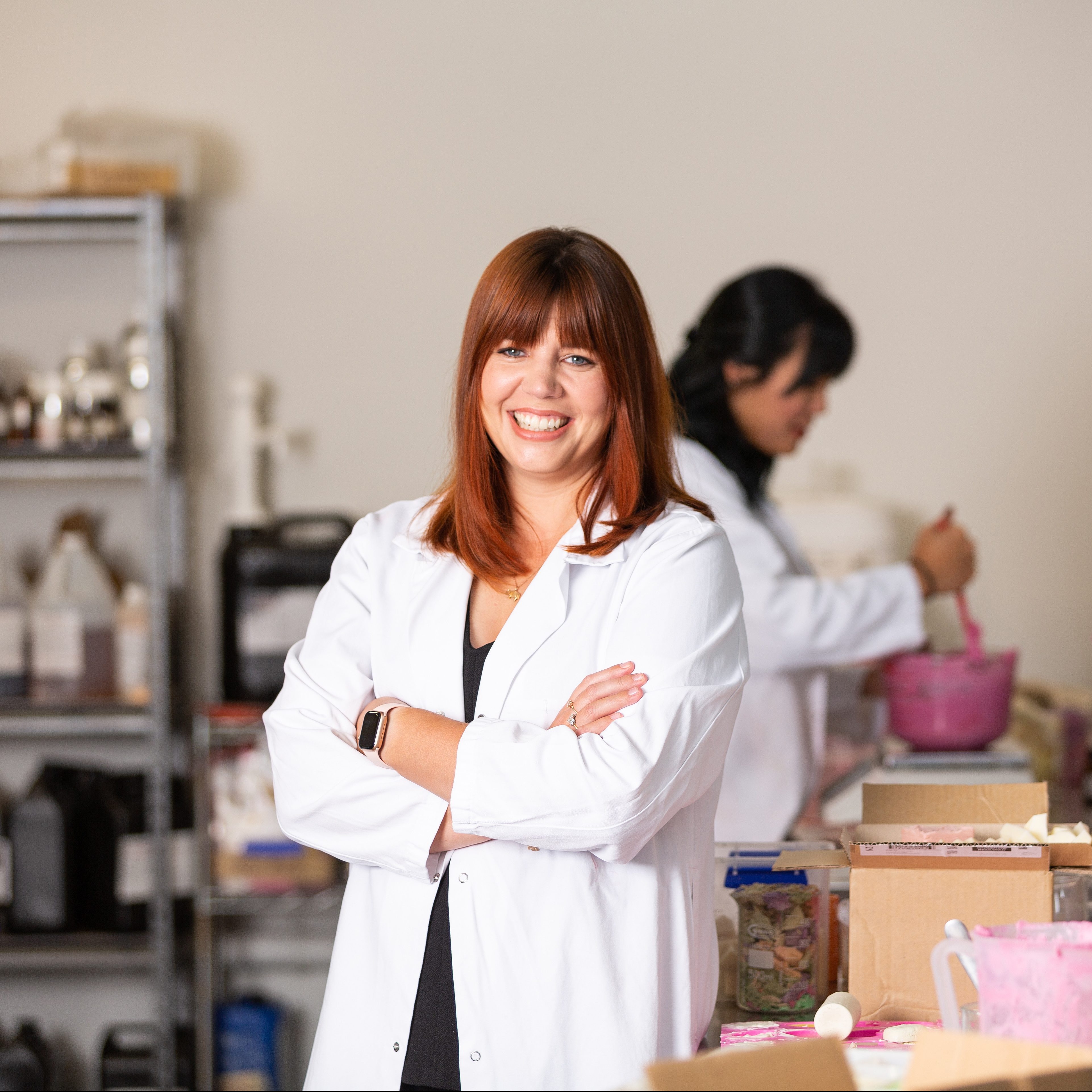Brianne West
When Brianne West noticed how much plastic was sitting on her bathroom shelves, she decided to do something about it.
She set out to rid the world of wasteful beauty products.
It was 2012, and the Canterbury University student did not yet have enough cash to battle the cosmetics industry on a global scale.
But she did have gumption and she did have smarts – so she marched off to her kitchen and started working on a recipe for solid shampoo bars that had no need for bottles or plastic packaging.
That was the start of Ethique, a brand that has since grown to become a beauty industry leader for sustainability and ethical manufacturing. A brand that is now has dozens of product lines and is being sold in more than 20 countries.
“The cosmetics industry is pretty murky,” Brianne says. “It’s so far from a beautiful industry, ironically.
“I wanted to – to use an overused term – disrupt it. I wanted to create a brand that was completely waste free, from a product perspective, but also had clean supply chains, treated its teams well and just did everything as ethically as possible.”
Ethique’s products are made with biodegradable, palm oil-free, natural and sustainably-sourced ingredients.
But the brand is not just environmentally friendly – it’s also socially conscious.
Ethique pledges to source fair-trade ingredients, to pay employees a living wage, and to avoid cruelty to animals. It also donates a slice of its profits to charities that support animal rescue, community education and environmental conservation.
At the beginning, these initiatives were unusual – but they struck a chord with consumers. Ethique attracted the attention of big publications in the United States – and really took off when stars like Ashton Kutcher and Britney Spears started name-dropping the brand on social media.
It turned out that Ethique was selling the right products, at the right time, to an untapped market.
“At the end of the day people will always make the ethical right choice if they are given it,” says Brianne.
“And it’s not about payoff. People don’t just buy environmentally friendly products if the product is rubbish. There are very few people who will buy something at the cost of its efficacy.”
Brianne’s team has not always been able to keep up with orders, and she has needed to raise extra capital through the crowdfunding platform PledgeMe.
She has also had to overcome some major challenges with product development and manufacturing.
“The biggest thing has been scaling a really niche product that didn’t exist beforehand and making it at such a scale that we now sell one Ethique product every 12 seconds globally,” Brianne says.
“It was very difficult – 18 months of chemists and engineers to figure out how we get this bar that started in my kitchen at home into a mass factory floor.”
Other challenges arise from New Zealand’s location at the end of some very long supply chains. But New Zealand is a brand in itself, and this creates opportunities.
“Obviously, we have a global reputation for being a kind, fair, environmentally friendly country, which is absolutely well deserved.
“But we are also one of the most isolated countries, so in terms of getting ingredients, or sourcing things that are pretty rare, or trying to develop new packaging or manufacturing techniques, it’s been a little bit harder than it would be in, say, America.
“But I think the benefits absolutely outweigh some of the harder stuff.”
Ethique’s success has helped spark a trend in the cosmetics industry towards sustainability. Some of this is ‘greenwashing’ – when businesses try to appear greener than they really are – but Brianne says consumers are driving positive change through their choices and many brands are genuinely trying to do the right thing.
The industry is providing more refillable bottles as well as ‘solid’ options like shampoo and conditioner bars which do away with the need to package fluids.
“Consumer demand is becoming quite intense,” Brianne says.
“If brands aren’t doing something better for the planet, then consumers are leaving them, so they don’t have much of a choice.”
Nine years after she started, Brianne is still looking to save the world.
Ethique claims to have prevented 13 million bottles from going to landfill, and is aiming for 500 million by 2030. Some ‘exciting new products’ will soon add to Ethique’s growing range of skincare, lip-care and hair-care products, including one which will push the brand into a new market segment.
Ethique is also working on some new charitable initiatives.
“We always donated 2 per cent of sales or 20 per cent of profit to charity since day one, and we’ll be expanding upon that now that we’re much bigger,” says Brianne.
“We’re also going to continue making as much headway as we can in terms of lessening carbon emissions and all those sorts of things that all businesses should be doing.”
Brianne wants Ethique to continue its intense growth and cement its position as a trusted global leader that other businesses look to for inspiration and for answers to their sustainability concerns.
Brianne has personal goals, as well – perhaps involving seaweed, which is a natural carbon sink.
“I’ve always been incredibly passionate about the environment, so I’ve always wanted to save the world, as trite as that sounds – and working and creating a business allows me to do that.”


